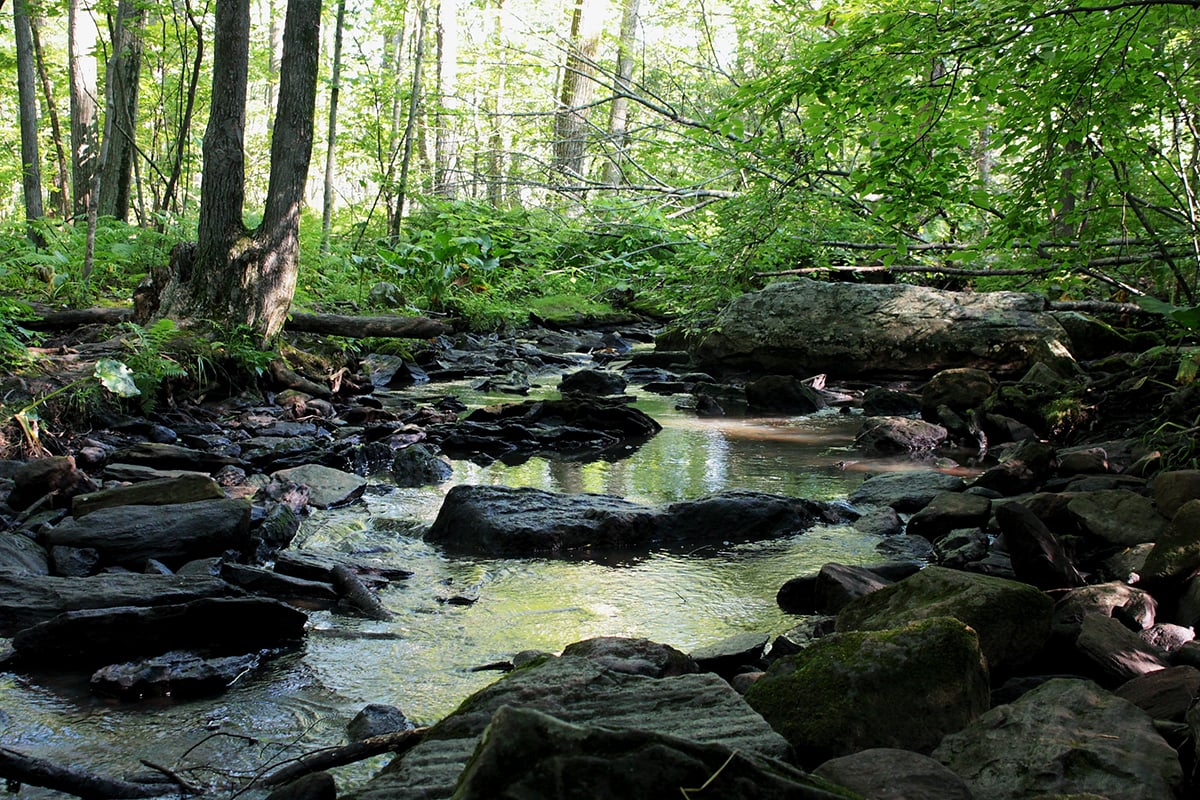Named after the brook that runs through the sanctuary, Broad Meadow Brook Wildlife Sanctuary in Worcester has over 400 acres of protected land, making it the largest urban wildlife sanctuary in New England.
The restoration of this land is essential to develop a self-sustaining, dynamic wetland ecosystem that is accessible for the enjoyment and benefit of neighbors, residents, and visitors.
Current State
Situated at the headwaters of the Blackstone River watershed, the Broad Meadow Brook wetland is fed entirely by the urban storm drain system. Abutting the sanctuary are residential neighborhoods, including Environmental Justice communities, that experience localized flooding.
Typically, wetlands are able to prevent flooding by storing an excess of water, but the 40-acre wetland in the sanctuary has been severely degraded by the alteration of natural water flows, poor water quality, and invasive plants. This altered aquatic environment also harms the fish and wildlife that rely on clean water.
Project Goals
The Broad Meadow Brook restoration project intends to improve water quality, flood storage capacity, and native wildlife habitat value while reducing flood risk in adjacent residential neighborhoods and enhancing recreational access to the area.
Mass Audubon’s resilient landscapes goal in the Action Agenda—our ambitious five-year plan to protect natural habitats within Massachusetts and increase access to nature—aligns with the goals of the Broad Meadow Brook restoration. By protecting these lands, we can maximize the ecological benefits for both local communities and wildlife.
To help reach these goals, Mass Audubon is working with several partners, including the City of Worcester. The Blackstone River Coalition has three stations throughout the brook to monitor water quality, and stream gauges installed and monitored by the Massachusetts Division of Ecological Restoration track the dramatic rise and fall of floodwaters during storm events.
Project team members are also working with Worcester's academic community, site neighbors, and visitors to strengthen project concepts and build a foundation for success. By engaging the local community, we can share the importance of restoring wetlands and waterways like Broad Meadow Brook.
Stay Connected
Don't miss a beat on all the ways you can get outdoors, celebrate nature, and get involved.



